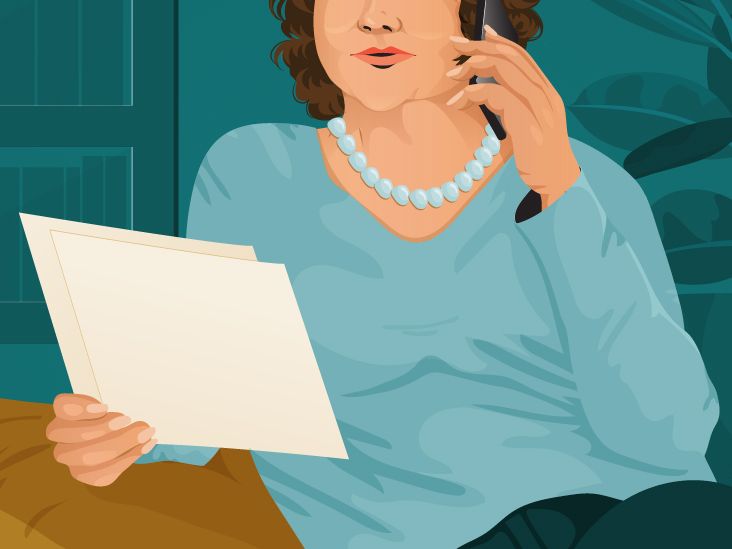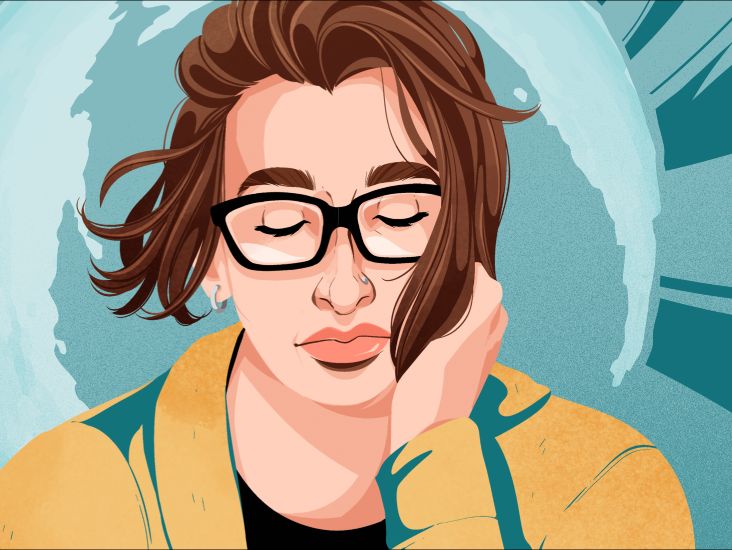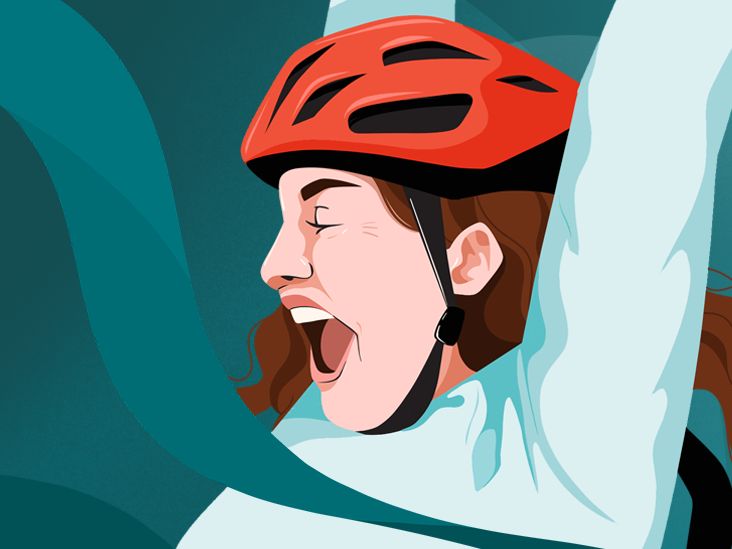
Through modern technology and the advancement of science, HIV is not the death sentence it was 40 years ago. But it is the thing most of us living with it fear will eventually take us out.
HIV is a diagnosis that is not the same as any other.
The stigma still exists. And it doesn’t seem to be getting any better. At least not for those of us who live with this reality every day.
There may be many of you reading this article who are in a mental space where you’re not sure about life, finances, love and relationships, medication adherence, or when and how to begin a health regimen. Which can make maintaining your mental health a challenge.
Depression affects so many of us living with HIV.
Sure, I’m an advocate for people with HIV, but trust me, sometimes those of us out here advocating are hit the hardest with depressive thoughts. There are days when I don’t want to get out of bed. When I have no desire to do any of the things I love. When I don’t want to go to work or be bothered with life. Period!
As an advocate, there are times when I am not sure that what I’m saying is uplifting others. And times when I’m not sure the knowledge about best practices is getting through to those who need it most. Especially when I see the rates at which we are still losing this fight.
And I wonder, is it even worth it?
I will never forget being in a relationship with the person I thought I was going to spend the rest of my life with. We shared a home, a life, and a mutual understanding of what we wanted our future to be.
I am the type of person who loves deeply and likes to go into most situations knowing all of the details. My partner’s health was one of those things I thought I knew, but not to the extent I should have.
When he shared his HIV diagnosis with me, I thought, OK, this is something that he’s managing. I didn’t see him take any medications for it, and I didn’t go to any doctors’ appointments with him. At that point, I’d known about HIV, but this was my first time dealing with it up close and personal.
Let’s pause. If I could give you any word of advice or caution: Find out as much as you can about the person you’re in a relationship with. When they start to hide or tell half-truths about something as important as their health, pay attention! If you’re being intimate with them, it’s no longer just about their health. Your health is important as well!
When I sat in a room over 10 years ago and was told my life would change forever, I had no idea to what extent it would change.
When they shared the news of my diagnosis with me, I promise, everything after that sounded like Charlie Brown’s teacher talking — I didn’t hear a word they said. I replied by nodding my head, they gave me a pamphlet, and I left the building.
Trying to digest any information at that point seemed useless because there was nothing a pamphlet, a Google search, or even my family could do for me. They didn’t know my truth. This was my body, my diagnosis, and my life.
On the drive home, I was busy thinking about how I would disclose my diagnosis to my (then) partner. The strangest thing was, when I sat him down to share my news … he said nothing. Not a word of advice, support, anger, or remorse. Nothing!
Shortly after this interaction, I would come home from work to find him, and all of his belongings, gone.
When I realized there was no one but me in the townhome I’d planned to spend my future in, every thought imaginable went through my head: Who would I tell first? How would they respond? Given the stigma around HIV, who would want to be around me now? What if I told no one and just ended it all right here in this house?
But I knew I couldn’t do that. I knew I mattered to someone. I wouldn’t want them to find me in that state, left wondering what happened, spending years of their own lives without answers or proper context. So, I did the only thing I knew to do — I kept my diagnosis to myself. For years, I attended gatherings with family and friends and said absolutely nothing.
If you or someone you know are experiencing thoughts of suicide, or in need of emotional support, call or text 988 to reach the 988 Suicide and Crisis Lifeline.
There were so many things no one shared with me when I was first diagnosed. No one told me my friends and family would need to learn just as much about mental health as they would about the virus. They certainly didn’t tell me how to align my thoughts with positivity and to use those thoughts when feelings of despair and loneliness would try to invade my mood.
No one reassured me I could still find love even though I’d been diagnosed with HIV. I tear up just thinking about those times when I believed my days of dating and love were over. Honestly, I knew I could probably find someone to sleep with one time, or even on occasion. But that would mean potentially disclosing my status every time I decided to be intimate, even if the person was not at risk.
For the longest time, my primary thought was, Who’s going to want me now?
When I started to wonder whether anyone would ever love me enough to want to be with me, I didn’t feel like anyone would understand. So, I kept my thoughts to myself. Let me tell you. Keeping those thoughts to myself only led to even darker thoughts. Thoughts that would try to overtake my mind.
I didn’t really understand what depression was, but I knew what I was feeling.
My emotions were becoming erratic and uncontrollable. It was slow at first. And I didn’t think much of it. I didn’t even link it to my HIV diagnosis.
Here is what depression looked like for me: There were times when I thought I’d be better off no longer existing — especially when I was alone. I would get to a place where the things I loved began to feel like a chore, or I simply didn’t have any interest in doing them.
For example, I love music, theater, and the arts. And directing choirs brings joy to my life. Now, when I recognize I’m not enjoying these things, I know something is wrong.
I believe depression is something that can be managed, once you understand what it is and how, when, and why it affects you. I am a man of faith, so I know to combat negative thoughts with more affirming thoughts. I’ve found comfort in just talking with a friend or family member, who can help take my mind off things, even if they have no clue what I’m going through.
But I’ve also sought help working through issues with someone trained to really hear what I’m saying and talk through what I’m feeling. Having family and friends who are there for me is important, but a trained professional is different. There are some things I can share with a professional that I wouldn’t normally share with someone close to me.
It wasn’t until I met someone new (the one who eventually became my husband) that I understood how powerful therapy could be. Sadly, this isn’t the case for many people who have been diagnosed with HIV. To be diagnosed with this virus and not understand how therapy works can be daunting.
I feel it is important for others, especially those who are newly diagnosed, to get to therapy sooner than I did.
I attribute much of my emotional wellness to my spiritual connection, but I can truly say that therapy, in addition to prayer, got me through some rough times.
I was able to find love with someone who understood me as a person and the science behind U=U (Undetectable equals Untransmittable). I’ll be the first to share this new phenomenon was a game changer when it came to intimacy.
Public health officials finally stated that if the person living with HIV remained in care and followed their medication regimen, they could no longer transmit the virus to another person through sex. That was huge! Especially for me, being the person seeking to be in a relationship with someone who was not living with HIV.
So, if you’ve read this far, and you’re a person who is living with HIV, whether a long-term survivor or newly diagnosed, I’m here to tell you I get it.
I have been going through this journey for quite some time and it is not easy.
Tips on checking in with someone living with HIV
- Regularly check in with them and try to get a feel for their emotional state.
- Make sure they know you’re there for them, whenever they need you.
- Resist the urge to try and cheer them up with hollow statements like, “Everything’s going to be OK.”
- Find different ways to connect, like sharing some fun things you’ve seen on social media.
- I know this may be a lost art, but pick up the phone and call! I can’t tell you how many times a simple phone call has jarred me back into a healthier mental space.
I believe we must share our true and raw emotions in a way that lets others know they are not alone. Sometimes, just listening to how someone else made it through can be a mechanism of healing.
I’d like to give one more nugget of advice. I know it can seem like being diagnosed with HIV is the end of your world. It can also feel like you’re going through this all by yourself.
Just know that HIV is a thing, but it’s not the only thing. Take it from me. I have to remember on a daily basis that I am on this earth for a reason. Even if that reason shifts or evolves over time, I am here to be a part of the process.
I have been living with HIV for almost 15 years, and I still find it hard, at times, to talk about my diagnosis. But if sharing my experience will help someone else live a little happier and a little longer, I gladly accept the challenge.
*This is a personal essay that has not been reviewed by a medical professional.
David Lester-Massey is an HIV advocate and strategic operations professional based in Atlanta, Georgia. Drawing on his years in the public health field and his personal experiences living and loving with HIV, David fights to help end stigma and spread awareness. As a motivational speaker and coach, David has been featured in a number of media outlets. You can find him on Instagram.


